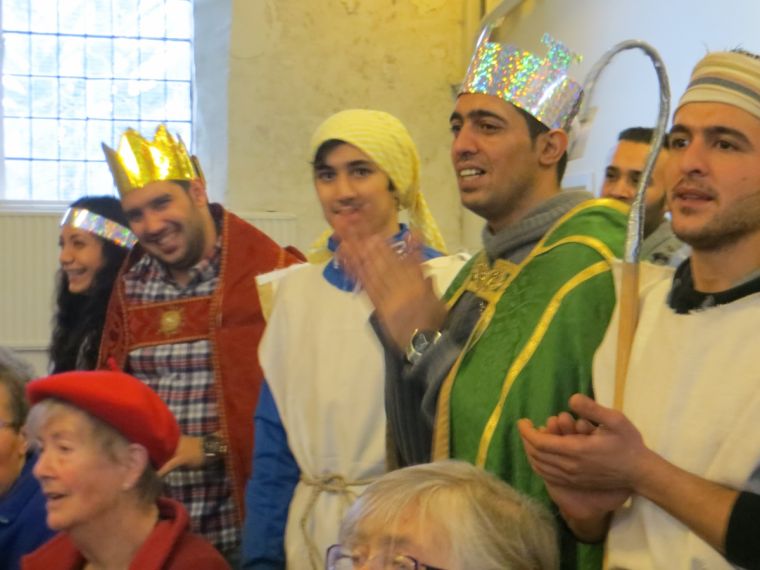The Highs And Lows Of 2016 On Christian Today
The New Year is a chance to look back over the previous 12 months. Reviewing the year gives us cause for thanksgiving, joy, sorrow and perhaps fear for the future. We can take it all to God in prayer.
This was 2016 on Christian Today:
January
Saeed Abedini was released from prison. An Iranian-born convert to Christianity who worked in Iran to found a network of house churches, he was arrested in 2012 and found guilty in January 2013 of undermining the Iranian government.
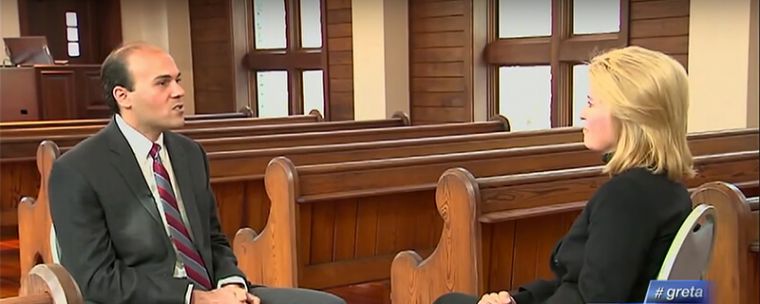
He was eventually released as part of a prisoner swap, creating a problem for Republican nominees who were forced to welcome his release. Abedini became a Trump supporter and claimed God told him he would be elected.
Larycia Hawkins, the Wheaton College professor suspended for saying Christians and Muslims worship the same God, withstood an increasing backlash from evangelical luminaries including Franklin Graham, who took her to task on Facebook: no, he said, we don't.
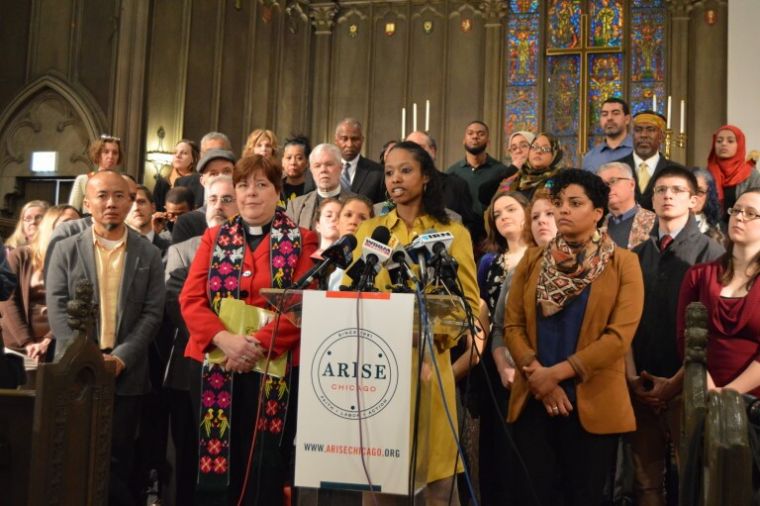
Demonstrations were held in support of the Bodnariu family, whose children were taken from them by Norwegian children's authorities after they were accused of spanking them.
February
Pope Francis visited Mexico and conducted a mass at the border with the US. It was inevitably seen as a political statement as immigration was a hot topic in the Republican primaries. A more significant encounter for the Pope was his meeting with Patriarch Kirill, the head of the Russian Orthodox Church, at an airport in Havana. Carefully choreographed, it resulted in a statement (pre-agreed, obviously) which was widely thought to be a diplomatic win for Moscow. Conservatives on both sides hated the whole idea.
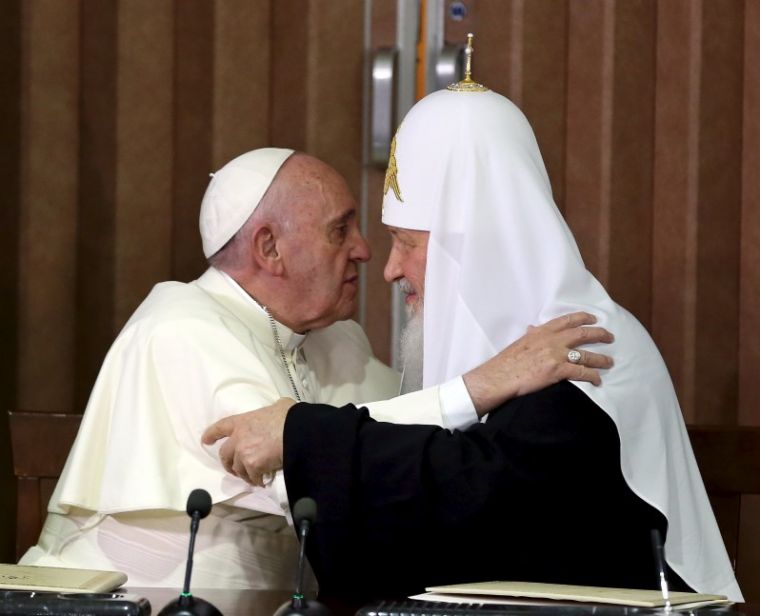
The Barnabas Fund released a document detailing various allegations against it and its founder Patrick Sookhdeo and denying them all. It was critical of the Evangelical Alliance, which rebutted the claims as "unfounded".
The demolition of the Calais Jungle began, with teargas and rubber bullets deployed. It would be many months before the process was complete.
March
Terrorist attacks dominated the headlines. Three co-ordinated suicide bombings took place in Brussels, two at the Zaventem airport and one at the Maalbeek metro station. Thirty-two people were killed, along with the three perpetrators, and more than 300 injured. Islamic State claimed responsibility.
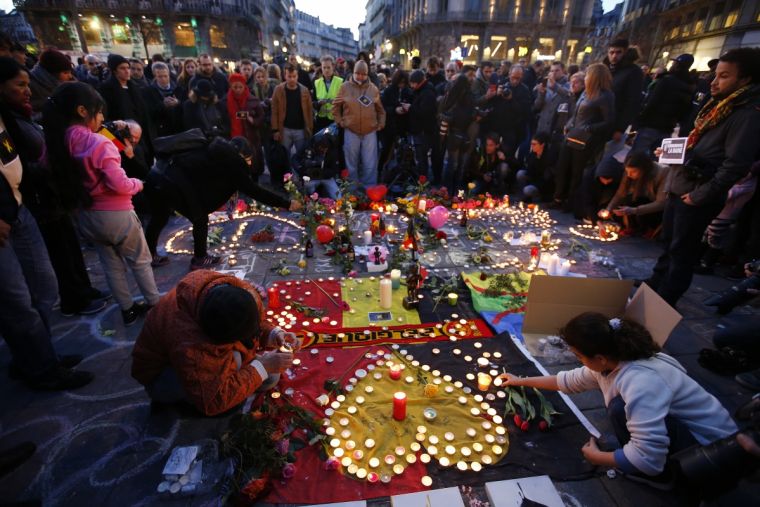
Another terrorist outrage targeted Christians in Lahore, Pakistan, killing 73 people. The Easter Sunday bombing took place in a park where Christians had gathered to celebrate the feast.
Church authorities continued to deny knowing anything about the fate of Fr Tom Uzhunalil, kidnapped by IS in Yemen. Unfounded rumours of his crucifixion continued to circulate.
Billy Graham's grandson Tullian Tchividjian, who was deposed from his Coral Ridge Church after his marriage broke down, was fired from Willow Creek Church after an unconfessed affair came to light.
April
Pope Francis published his reflection on the results of the two synods on the family sponsored by the Vatican. Amoris Laetitia ('The Joy of Love'), as predicted, disappointed people who wanted him to come out in support of gay marriage and easy divorce (he didn't) and also those who wanted him to take a harder line on the evils of the modern world (he didn't do that either).
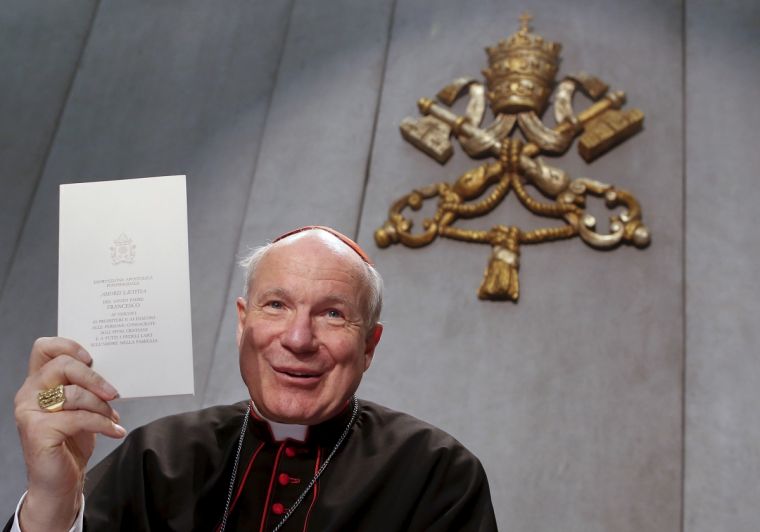
The Archbishop of Canterbury, Justin Welby, was informed that his real father was Sir Winston Churchill's private secretary rather than Gavin Welby, as he – and his mother – had always thought. She had had a brief relationship with Sir Anthony Montague Browne, Welby's biological father.
Gospel for Asia fought back against fraud allegations. The giant mission organisation, facing accusations of financial mismanagement and deliberate attempts to deceive its donors, filed papers seeking to have a suit against it dismissed.
May
The pressure Christians in Egypt face was highlighted by an attack on a 70-year-old woman who was stripped and beaten by her Muslim neighbours. Egypt's President Abel Fattah al-Sisi said the violence was "regrettable" and promised the culprits would be caught.
Open Doors, which supports the persecuted Church, said Saudi Arabians are turning to Christianity in secret. While the kingdom has been accused of "systematic, ongoing, and egregious violations of religious freedom", the number of native believers is rising.
The World Council of Churches and Israel had a major row over the treatment of WCC delegates to a conference on climate change; the WCC said they were treated with an "unprecedented" level of aggression and intimidation before being deported.
June
Britain voted to leave the EU. Attacks on immigrant communities followed, leading to the Archbishop of Canterbury. saying that people of "evil will" were using Brexit as an excuse to express their hatred. The implications of the vote are still not clear, but the fallout has been long and bitter. Remain voter the Dean of Exeter was forced to apologise after he tweeted: "Never underestimate the power of stupid people in large groups." Labour MP Jo Cox was murdered by a man who shouted "Britain first" as he stabbed her.
The Pan Orthodox Council, designed to bring together all 14 Orthodox Churches in Crete, was thrown into disarray by the last-minute withdrawal of several participants including the giant Russian Orthodox Church.
There were terror attacks on an Istanbul airport (45 dead and more than 230 injured) and a gay nightclub in Orlando, Florida (49 dead and 53 wounded). The latter led to heart-searching among American evangelicals about how they spoke about gay people.
July
France was hit by terrorist attacks. One claimed the lives of 86 people as an extremist drove a truck along the Promenade des Anglais in Nice. The other saw Fr Jacques Hamel, an 85-year-old French priest, murdered by two Muslims claiming allegiance to Islamic State as he celebrated mass. The world mourned.
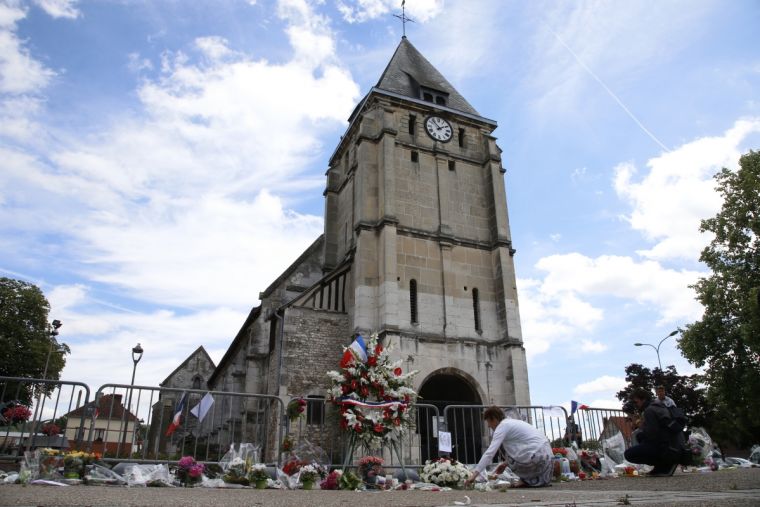
An attempted coup in Turkey was crushed but has led to massive repression which has affected Christians too.
Russia's crackdown on evangelicals and other minority religious believers came into effect when President Putin signed the controversial 'Yarovaya Law'.
August
A massive earthquake hit central Italy, killing nearly 300 people and destroying countless ancient buildings including historic churches. There was particular damage to the town of Amatrice, including to the church of Sant'Agostino, whose facade and rose window were destroyed.
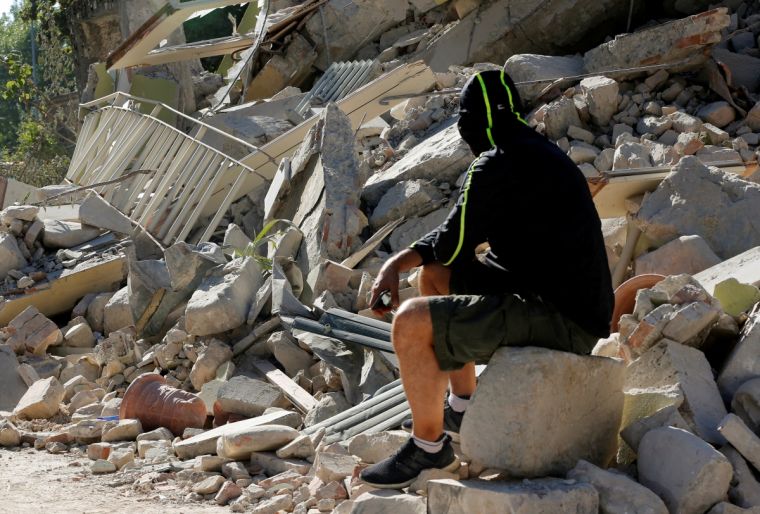
The Olympics and Paralympics took place in Rio de Janeiro, Brazil. They were widely thought to be successful though they were dogged by accusations of under-preparedness, pollution, injustice to people who lost their homes to venues, and environmental damage.
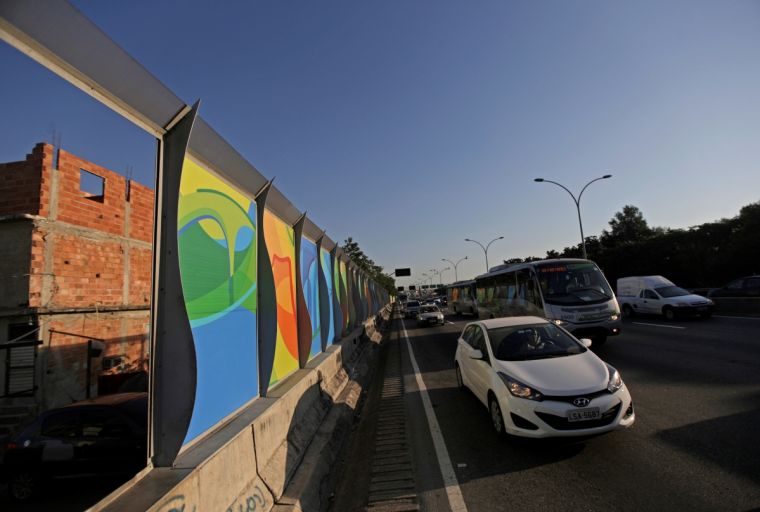
The manager of World Vision's Gaza operation was charged with channelling vast funds to Hamas. Observers have ridiculed the accusations and World Vision has flatly denied them.
September
A continuing row over how to deal with the Calais refugee crisis saw the Archbishop of Canterbury condemn the government over its failure to unite unaccompanied refugee children with their families in Britain. A Unicef report accused the government of putting children at risk of trafficking and abuse.
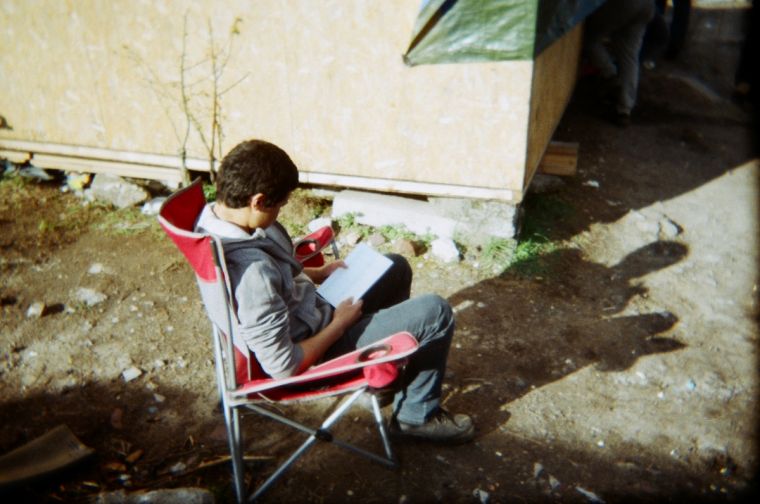
A minister in Canada who doesn't believe in God was put on notice by a United Church of Canada panel that said her views weren't compatible with her ministry. Her congregation applauded her, however.
Science populariser Prof Brian Cox, himself an atheist, called for believers and non-believing scientists to acknowledge each others' contribution to human beings' search for meaning and to avoid "toxic" dismissals of different worldviews.
October
The long-awaited assault on Mosul, held by Islamic State since 2014, began. ISIS fighters reacted by massacring hundreds of men and boys in the city; according to a CNN report 284 bodies were dumped in a mass grave. Christians had previously been driven out of the city or murdered. Christian villages began to be liberated.
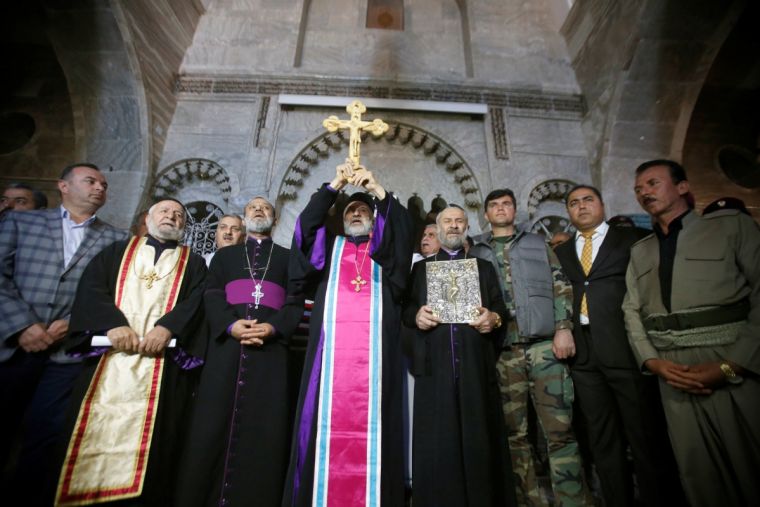
The US election contest between Donald Trump and Hillary Clinton grew increasingly ugly. A member of Trump's Evangelical Executive Advisory Council, James MacDonald, denounced him as "lecherous and worthless" following the release of a 2007 videotape showing him making crude remarks about women.
The owners of Ashers Baking Company in Northern Ireland lost their appeal in the gay cake case.
November
In a stunning reversal of most predictions, Donald Trump was elected to succeed Barack Obama as president of the US. A divisive figure even within his own party, Trump had made a number of pledges during the campaign but began to row back on them almost immediately, offering some hope that he might be open to negotiation.
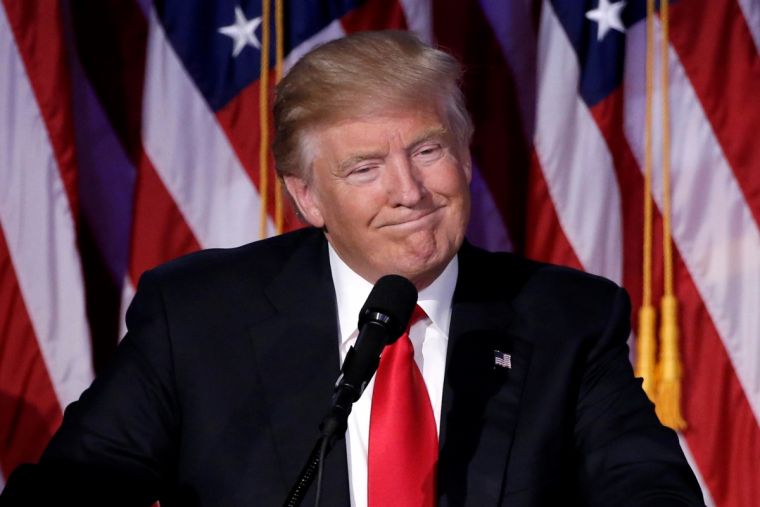
The Christian governor of Jakarta in Muslim-majority Indonesia was accused of blasphemy after he quoted the Qur'an in a speech. Demonstrations opposing and supporting him saw thousands take to the streets.
Five people accused of taking part in the murders that saw a Christian Pakistani couple thrown into brick kilns, possibly while they were still alive, were sentenced to be hanged.
December
There were more terrorist attacks by Islamist militants. A Coptic church in Cairo was bombed, killing 25 people; at least two more died later from their injuries. A man drove a lorry into a crowded Christmas market in Berlin, killing 12 and injuring many others. The Berlin incident fuelled fears in Europe that migrants would be targeted in revenge attacks.
The first Nigerian bishop in the Church of England was announced. Rev Woyin Karowei Dorgu, at present vicar of St John's in Upper Holloway and a former medical doctor, is to be Bishop of Woolwich.
More than 50 converts from Islam in Stoke on Trent are spending their first Christmas as Christians.
